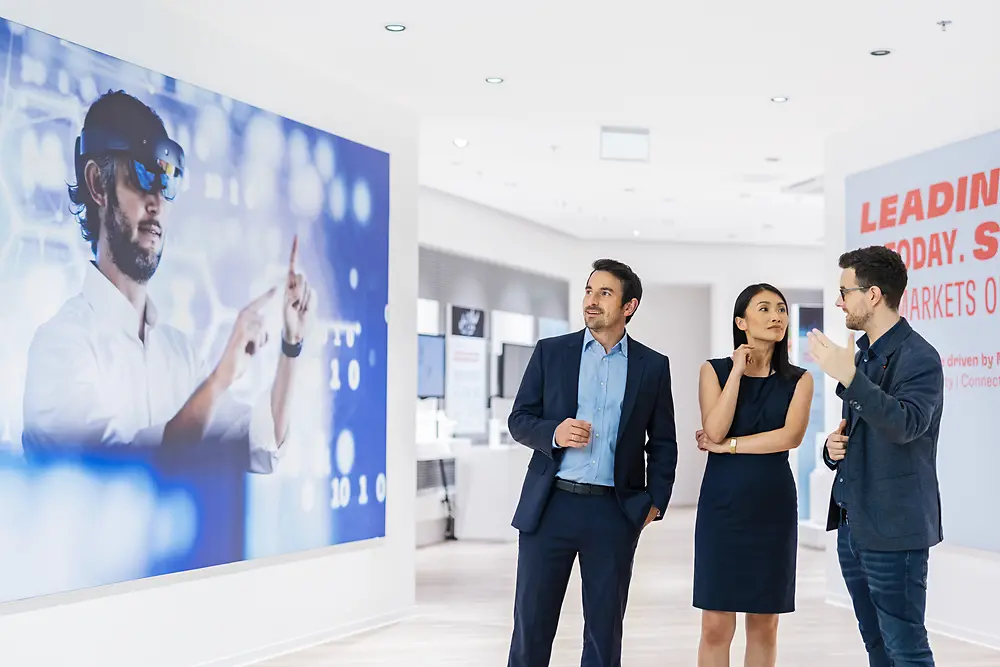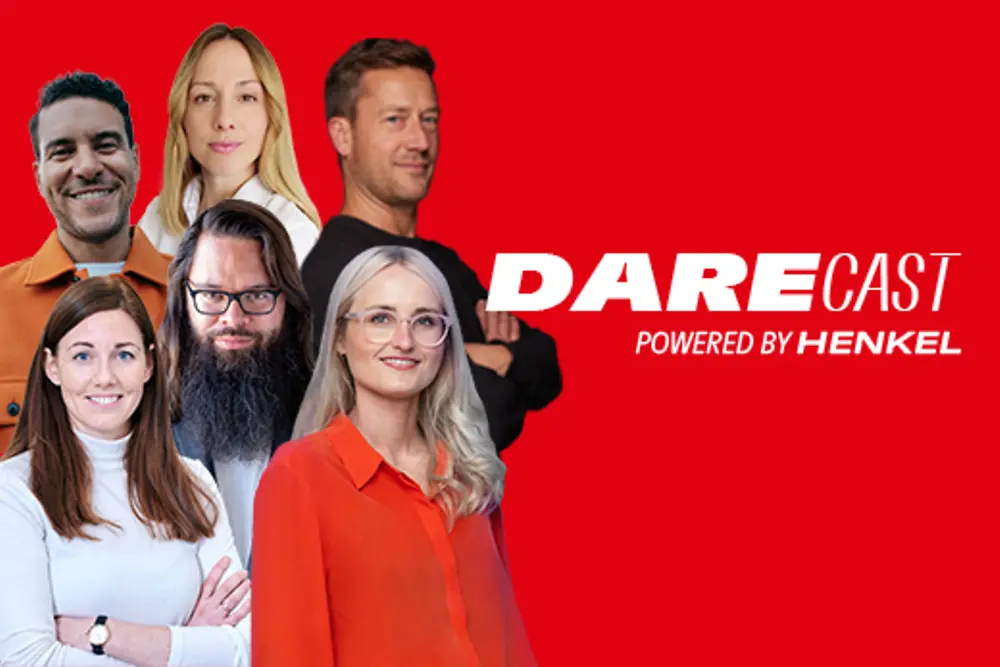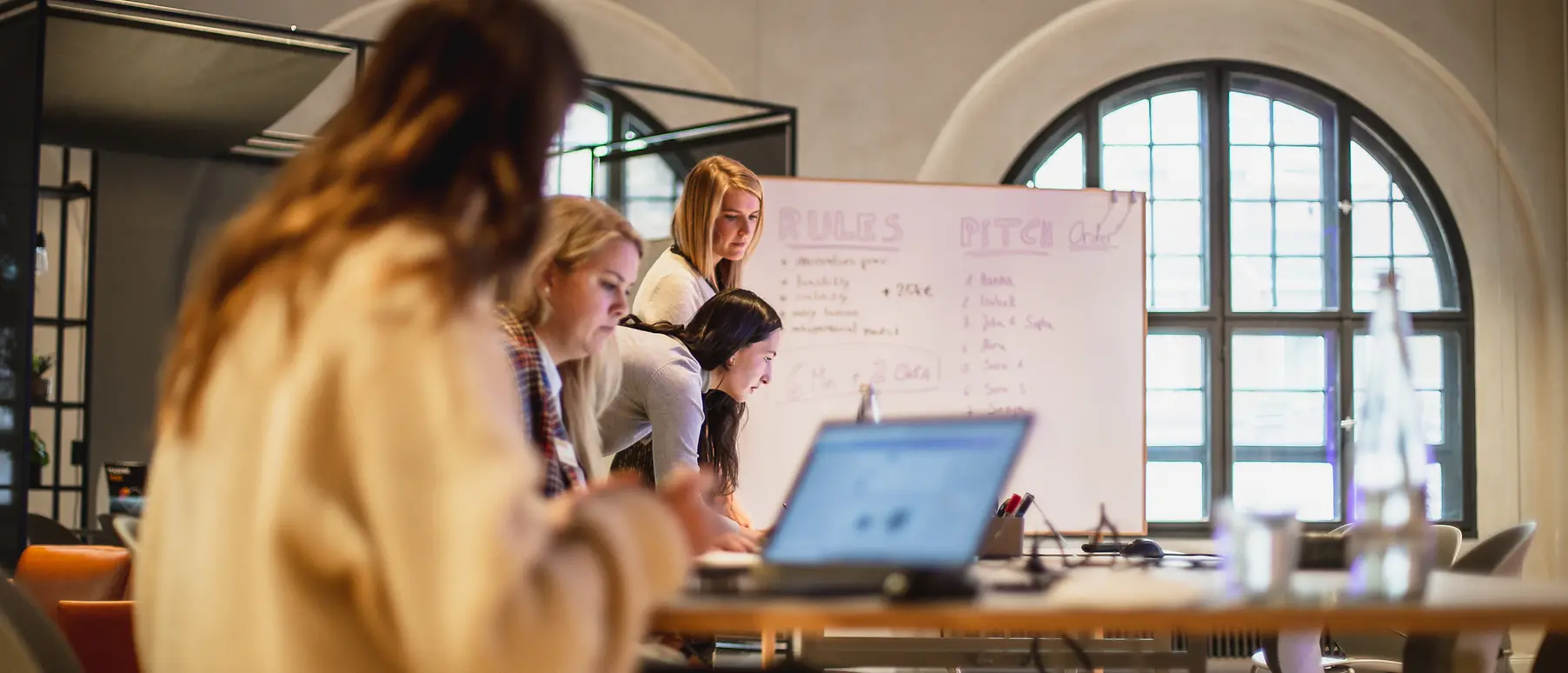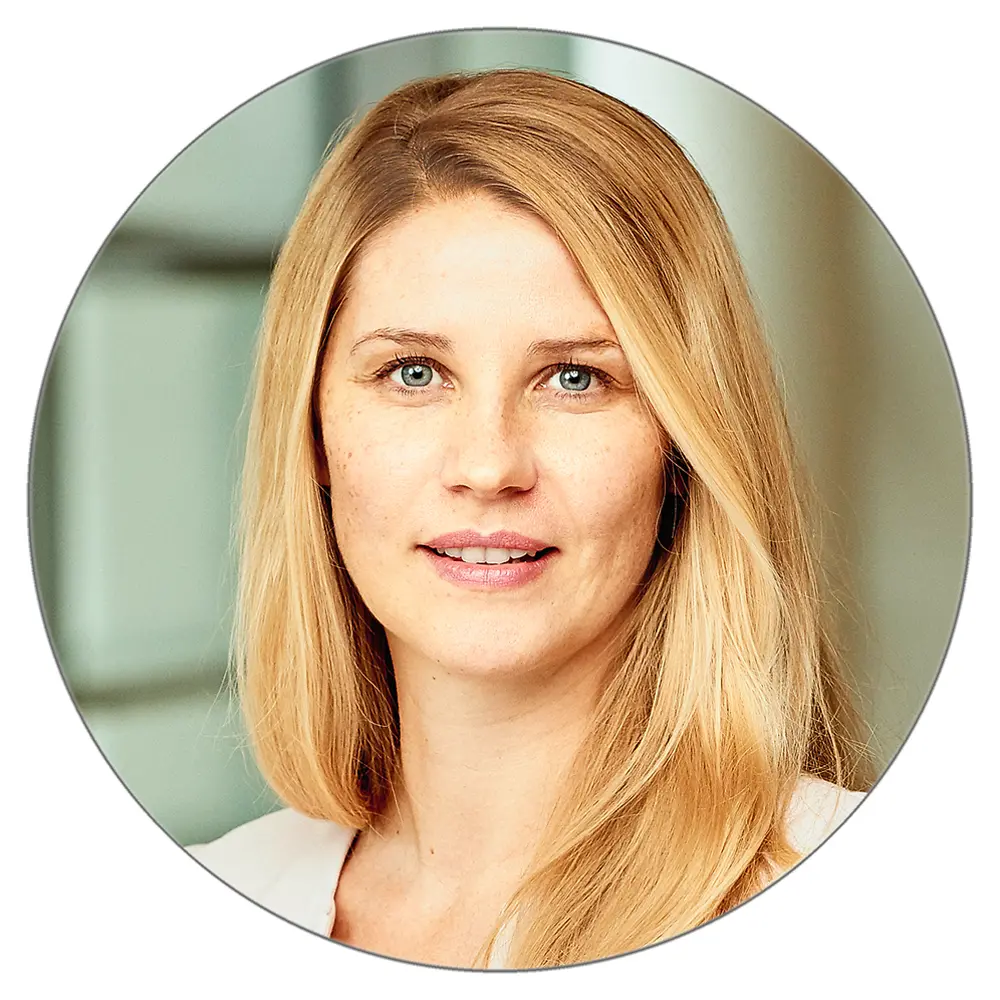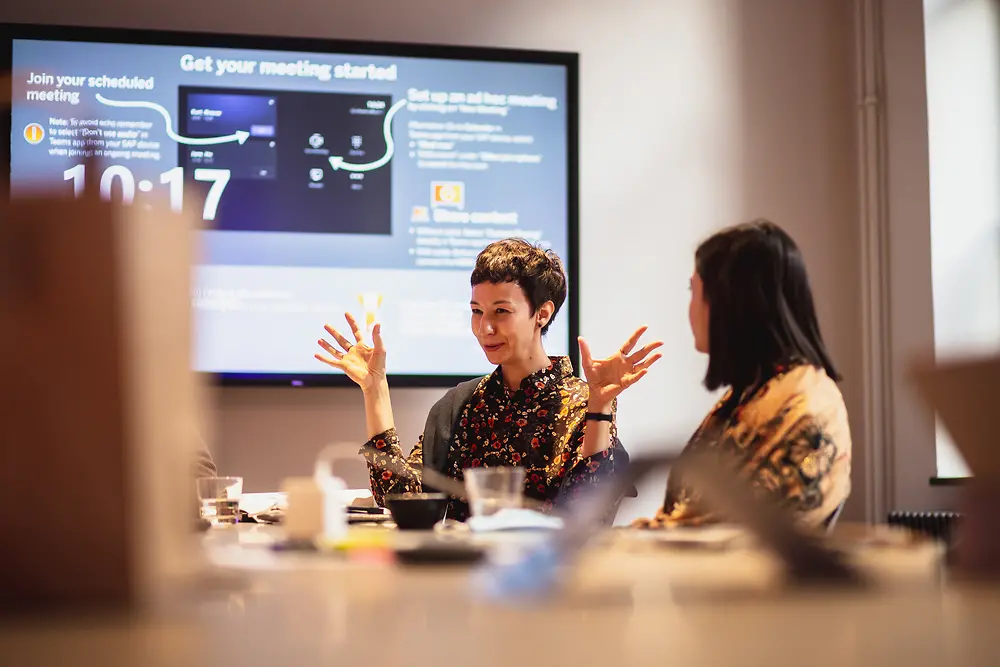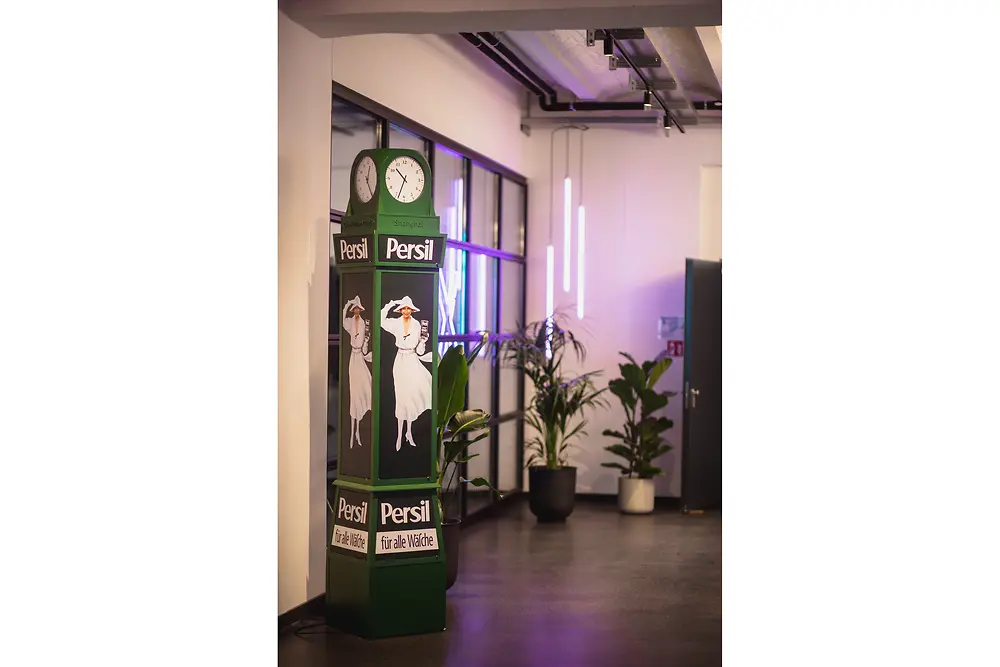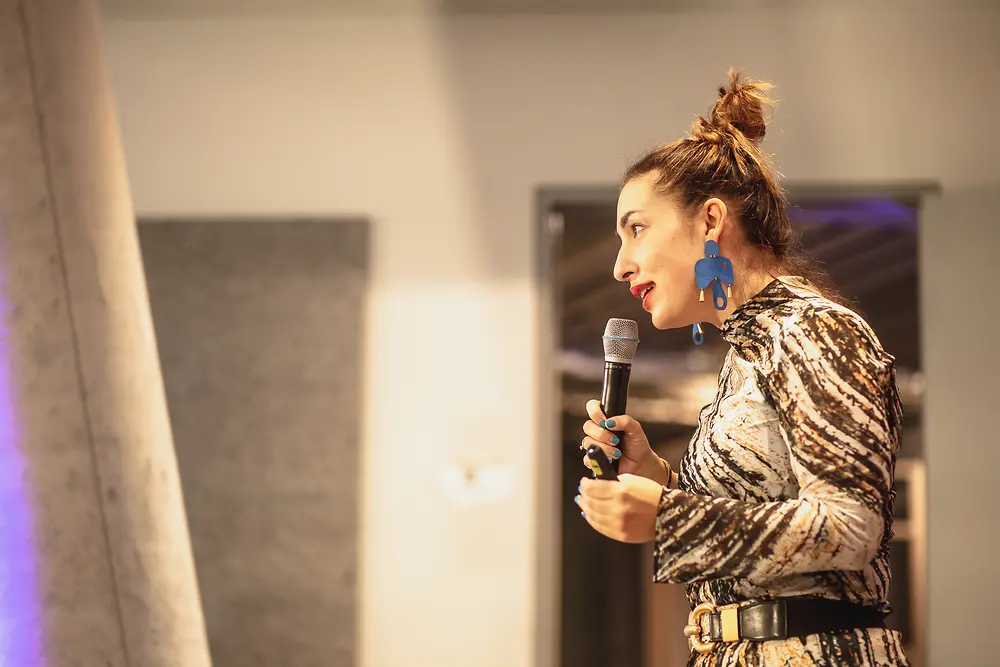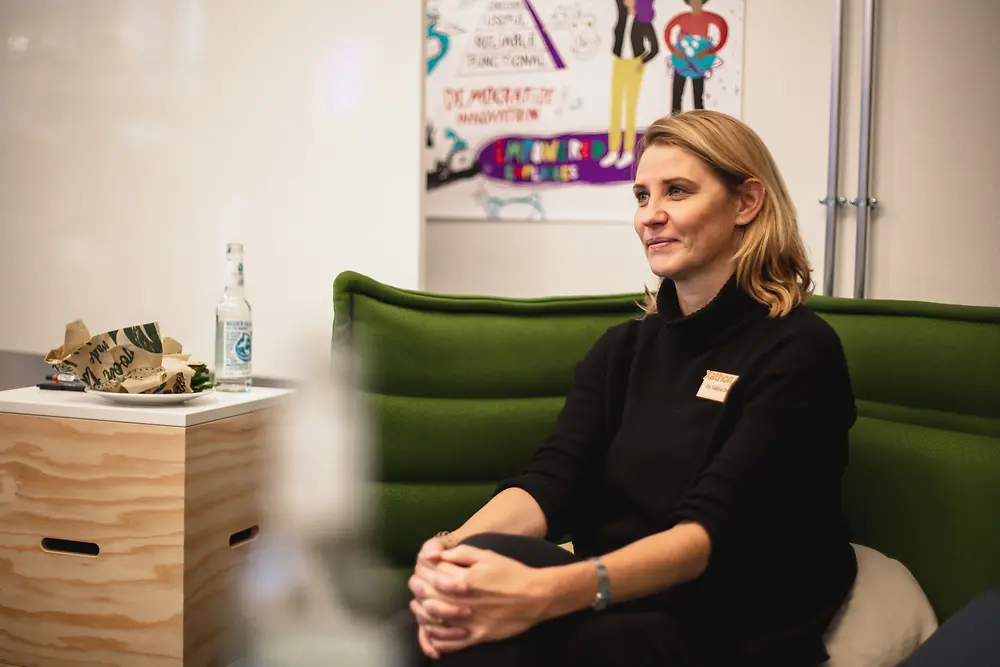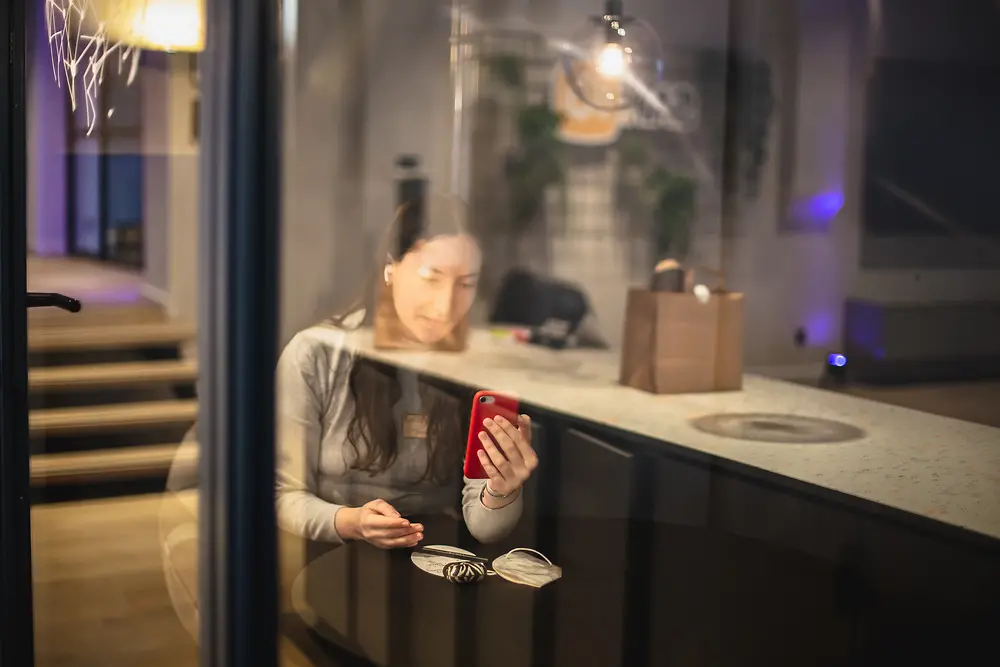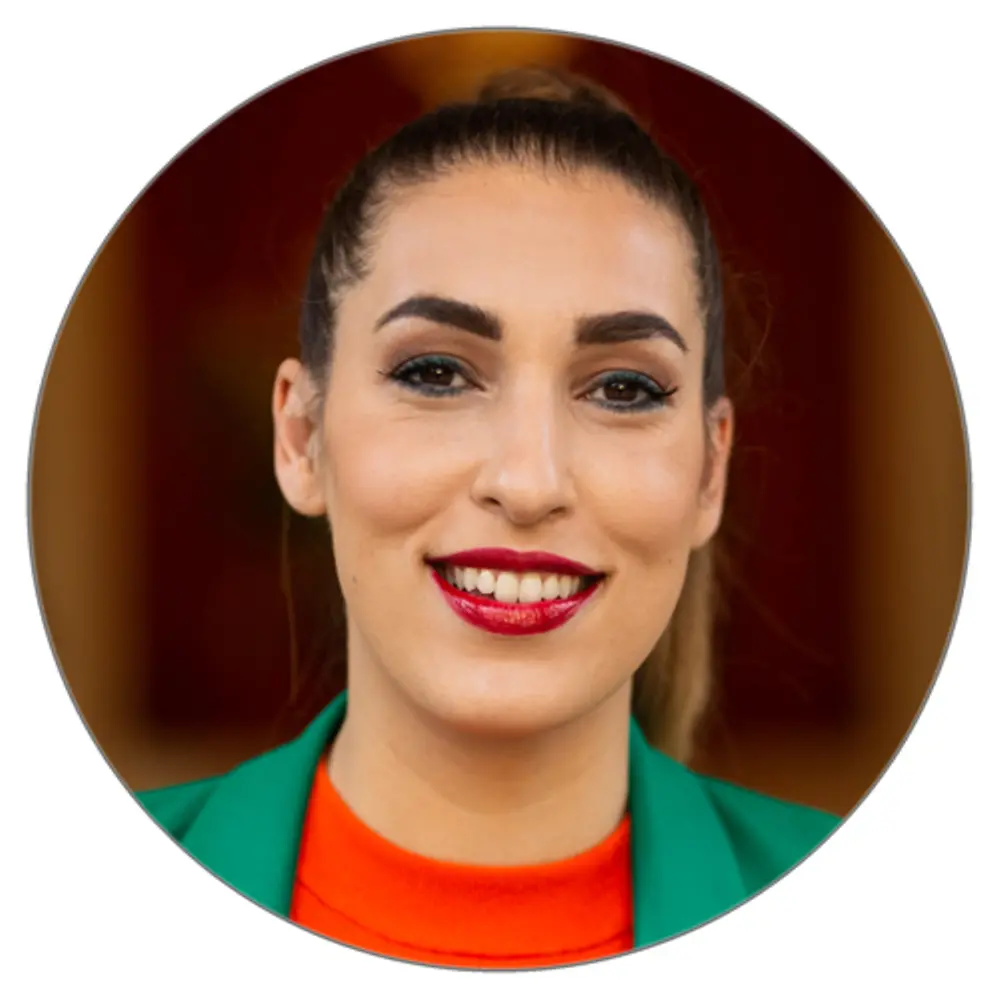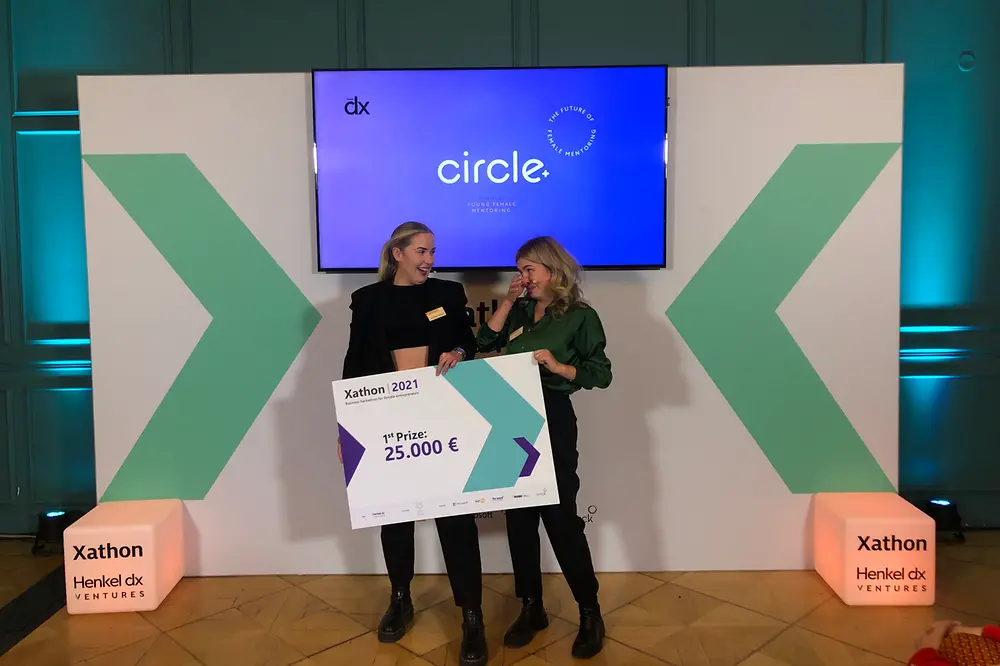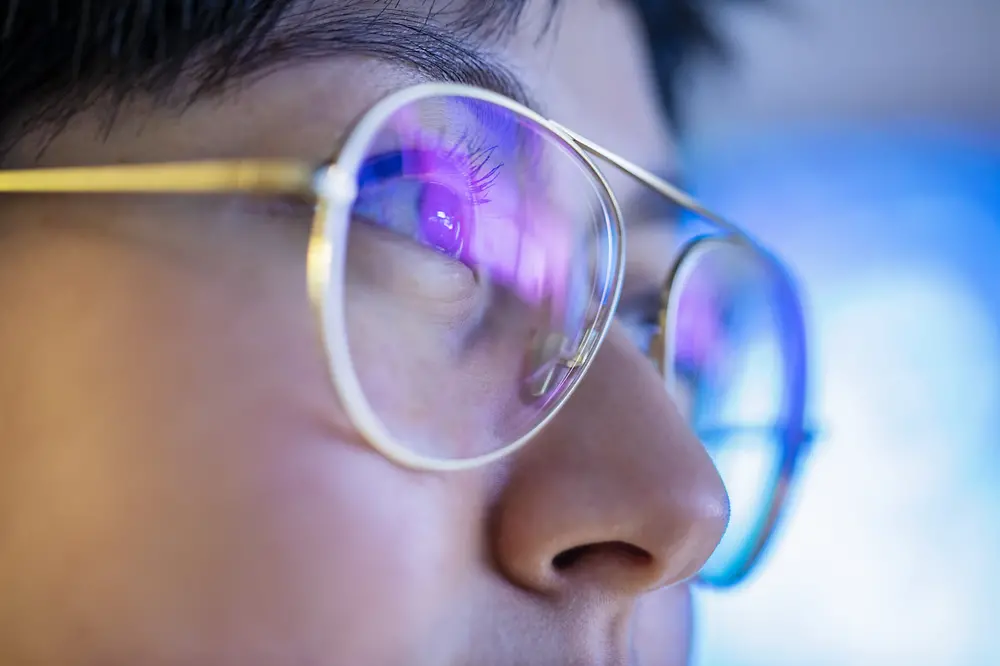When two prominent female figures in the digital industry come together to talk about innovation and the changes that are shaping our times, you just know it is going to be an interesting conversation: Tijen Onaran is the founder and CEO of Global Digital Women, which is considered one of the leading diversity companies in Germany. Dr. Salima Douven is driving new ideas and innovations as Head of Open Innovation & Incubation at Henkel dx, the digital division of Henkel. Here, they talk openly and honestly about diversity and a “doer mentality” that is fast becoming a crucial business asset.
Tijen: Salima, I am so happy we have this opportunity to talk. As befits a conversation about innovation, let’s get started with a pitch: You are Head of Open Innovation & Incubation at Henkel dx, the digital business division of Henkel. How do you explain your job to people?
Salima: As with any good pitch, I will keep my answer short: My team and I are working to lead Henkel into the digital era and to bring innovation to the streets as effectively as possible.
Tijen: A perfect elevator pitch! What is rather unusual in the field of innovation is that you’ve been with Henkel for such a long time. What keeps you at the company?
Salima: I have been with Henkel since 2008. I worked for another company while I was writing my doctoral thesis, but I consider Henkel to be my first big corporate employer. Fresh out of university, I knew that I wanted to work for a large corporation. But I must admit that I didn’t expect to still be here 14 years later! Henkel has always provided a good environment for me, I’ve been able to work on many exciting topics, and quite early on, I became involved in the field of digitalization. At the time, I realized that this area offered many different possibilities – and it still does! No two days are the same and that is why, even after 14 years, the end is nowhere in sight – even though this may be considered rather unusual nowadays.
Tijen: I hold a similar view. When I look at CVs nowadays, I find it fascinating to see all the things people have done, even at a young age: Education, start-ups, interests in a wide variety of areas. It was different back when I was first applying for jobs. Having that many different experiences on your CV wasn’t perceived as a good thing. Today, this is considered normal; in fact, it is seen as a real asset.
It is also an expression of diversity in the sense of career diversity. Perfect, linear resumes are no longer in demand. It’s ok to have a bit of an “edge” nowadays, and companies are open to a broader range of resumes – I think this really enriches the whole process.
Salima: That’s true, a lot has changed. Things that used to be seen in a rather bad light and even considered erratic are now viewed as an expression of versatility, flexibility and being interested in many different areas. There has definitely been a change in perspective. Which is a good thing, of course; I see this reflected in my personal environment.
Tijen: You are in daily contact with start-ups and young companies. Do you have any start-up experience yourself?
Salima: While I was writing my doctoral thesis, I founded a start-up with a friend. It was for “elective affinities”, we wanted to connect people who were not related by blood but by spirit. We encountered a lot of rejection at first and it took a lot of time and resources to overcome the administrative hurdles. There were times when we felt like giving up. But we prevailed. We wanted to work on a topic that had not been addressed before, to create an innovation that would be of importance to many people. It was an experience that has had a lasting impact on me.
